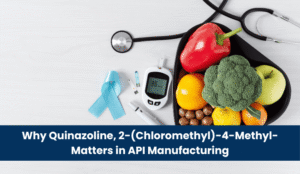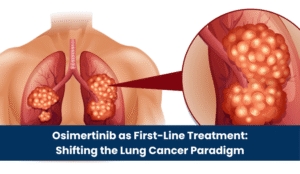You may have come across the name Baricitinib more than once in recent medical news. It is one of those innovative drugs that began with a single idea but is proving to be a success in addressing a multitude of other complex situations as well. Stuck with a little of the how-to-fit-it-together syndrome? Let us analyse it, bit by bit, simply. Imagine this as a conversation about what this drug is, why it’s making waves, and what you need to know.
What Is Baricitinib?
Simply put, baricitinib is a type of medicine known as a Janus kinase (JAK) inhibitor. It works by calming an overactive immune system – the kind that mistakenly attacks the body’s tissues. Originally developed for one major condition, its potential has widened significantly. The quality and precision in the pharmaceutical manufacturing of such targeted therapies are crucial, and that’s where expertise from active pharmaceutical ingredient manufacturers becomes vital. Understanding the source and purity of the baricitinib api (Active Pharmaceutical Ingredient) is fundamental to its effectiveness and safety.
Baricitinib for Rheumatoid Arthritis (RA)
This is where baricitinib first made its mark. Rheumatoid Arthritis isn’t just about stiff joints; it’s a painful, chronic autoimmune disease where the immune system attacks the lining of the joints. It can be exhausting and debilitating. Baricitinib for rheumatoid arthritis offers a targeted approach for patients who haven’t found sufficient relief with older treatments. It helps reduce inflammation, pain, swelling, and can even slow down joint damage. For many, this means getting back to daily activities with less discomfort. The development of reliable treatments, such as baricitinib, for rheumatoid arthritis underscores the importance of rigorous API manufacturing standards, which dedicated pharmaceutical ingredient manufacturers uphold.
Baricitinib and Hair Loss (Alopecia Areata)
Now, here’s an area where baricitinib has brought genuine hope and excitement. Alopecia Areata causes sudden, often patchy, hair loss – eyebrows, eyelashes, scalp hair – due to the immune system attacking hair follicles. It’s emotionally tough, deeply impacting self-esteem. Clinical trials have shown impressive results, indicating that baricitinib can promote significant hair regrowth in alopecia. It’s not a quick fix, and results vary, but for those struggling, it represents a powerful new option. The journey of baricitinib for alopecia from concept to reality highlights the innovation driving modern medicine, which relies on high-purity API raw materials sourced responsibly.
Baricitinib in COVID-19 Treatment
The pandemic pushed researchers to explore existing drugs for new battles. Enter baricitinib. Studies have found it beneficial for certain hospitalised COVID-19 patients, particularly those requiring oxygen. How? Its ability to dampen an out-of-control immune response (the infamous “cytokine storm”) proved valuable alongside other treatments. While not a first-line or outpatient drug, baricitinib COVID-19 treatment became an important tool in the medical arsenal during critical phases. This rapid adaptation showcased the agility of the pharmaceutical sector and the critical role of active pharmaceutical ingredient companies in scaling up the production of essential medicines, such as the Baricitinib API.
How Baricitinib Works in the Body
So, what’s the magic behind baricitinib? It zeroes in on specific enzymes inside cells called Janus kinases (JAKs). These JAKs act like messengers, passing signals that trigger inflammation, the root cause of problems in RA, Alopecia, and severe COVID-19. By blocking these JAK enzymes, baricitinib effectively turns down the volume on those harmful inflammatory signals. Think of it like putting a mute button on the part of your immune system that’s shouting too loudly. The effectiveness hinges on the precise molecular structure of the Baricitinib aAPI produced through sophisticated API manufacturing processes by specialised API manufacturer partners. Consistent quality in this api raw material is non-negotiable for patient safety and efficacy.
Possible Side Effects of Baricitinib
Like any potent medication, baricitinib isn’t without potential side effects. It’s crucial to have this conversation with your doctor. Common ones can include upper respiratory tract infections, nausea, or headaches. More serious, but less common, risks include increased susceptibility to infections (such as shingles or tuberculosis), changes in the count of blood cells, or elevations in liver enzymes. There’s also a potential, though rare, increased risk of heart-related events or blood clots, especially in those with existing risk factors. This is why medical supervision, regular monitoring, and blood tests are essential. Never hesitate to discuss any concerns or new symptoms with your healthcare provider. Choosing an API manufacturer with stringent quality control and a commitment to safety, like Bulat Pharmaceutical, provides foundational assurance from the very start of the supply chain.
The Bulat Pharmaceutical Commitment: Delivering Quality APIs for Baricitinib’s Journey
Baricitinib exemplifies the evolution of modern medicine. From its established role in managing the joint pain and damage associated with baricitinib for rheumatoid arthritis, to restoring confidence through baricitinib for alopecia, and even aiding in the fight against severe COVID-19, its impact is broad and significant. Its mechanism, targeting specific inflammatory pathways, offers a refined approach compared to older, broader immunosuppressants. Of course, understanding the potential side effects and working closely with your doctor is paramount.
The journey of a drug like baricitinib from the lab to the patient relies heavily on the unseen backbone of the industry: active pharmaceutical ingredient manufacturers. The quality, purity, and consistency of the Baricitinib API define the therapy’s success. Companies specialising in pharmaceutical manufacturing, particularly trusted active pharmaceutical ingredient companies like Bulat Pharmaceutical, play an indispensable role. Their expertise in API manufacturing and commitment to delivering high-grade API raw materials ensure that innovative and life-changing treatments reach those who need them safely and reliably. It’s a complex process, but one that ultimately delivers hope and improved health.






